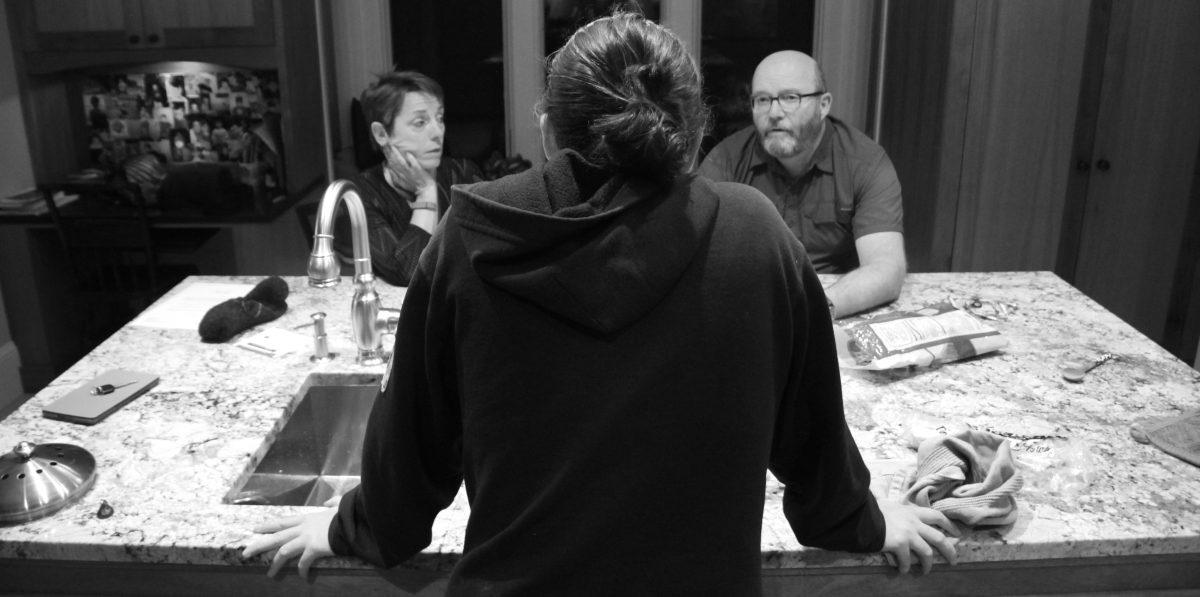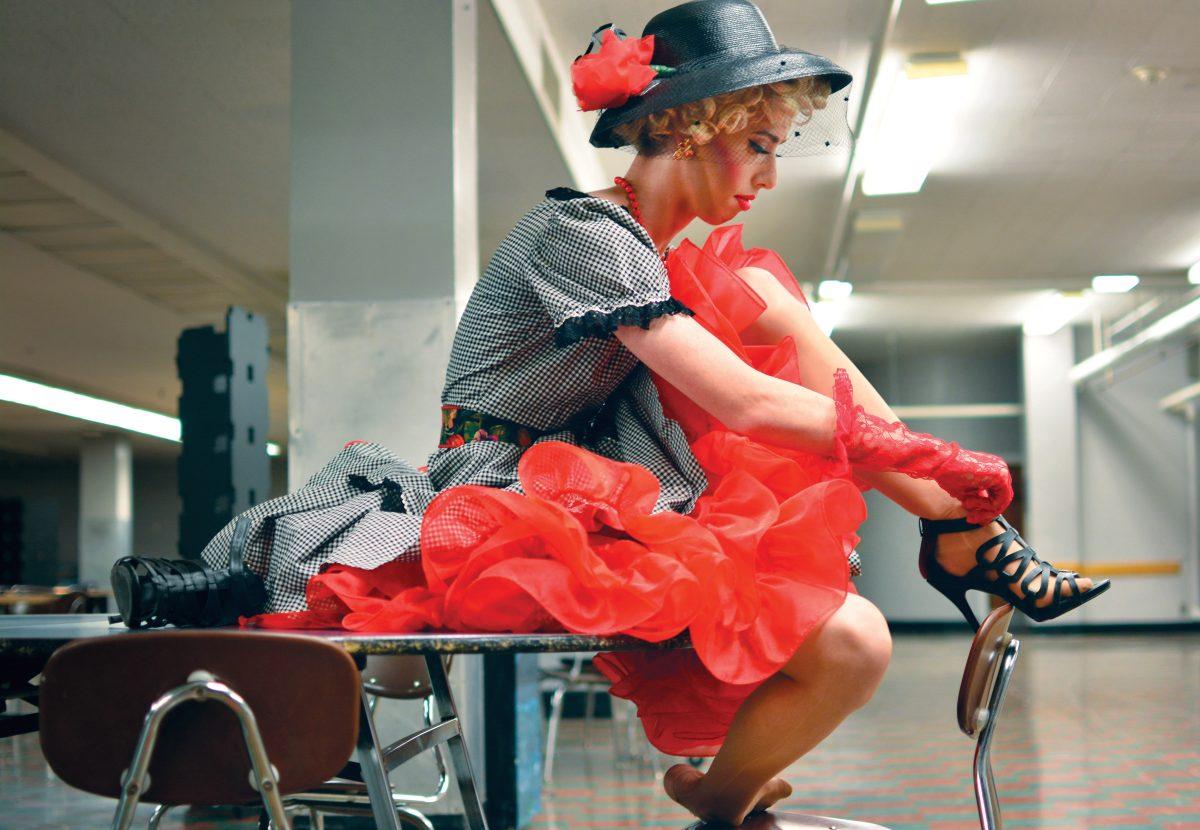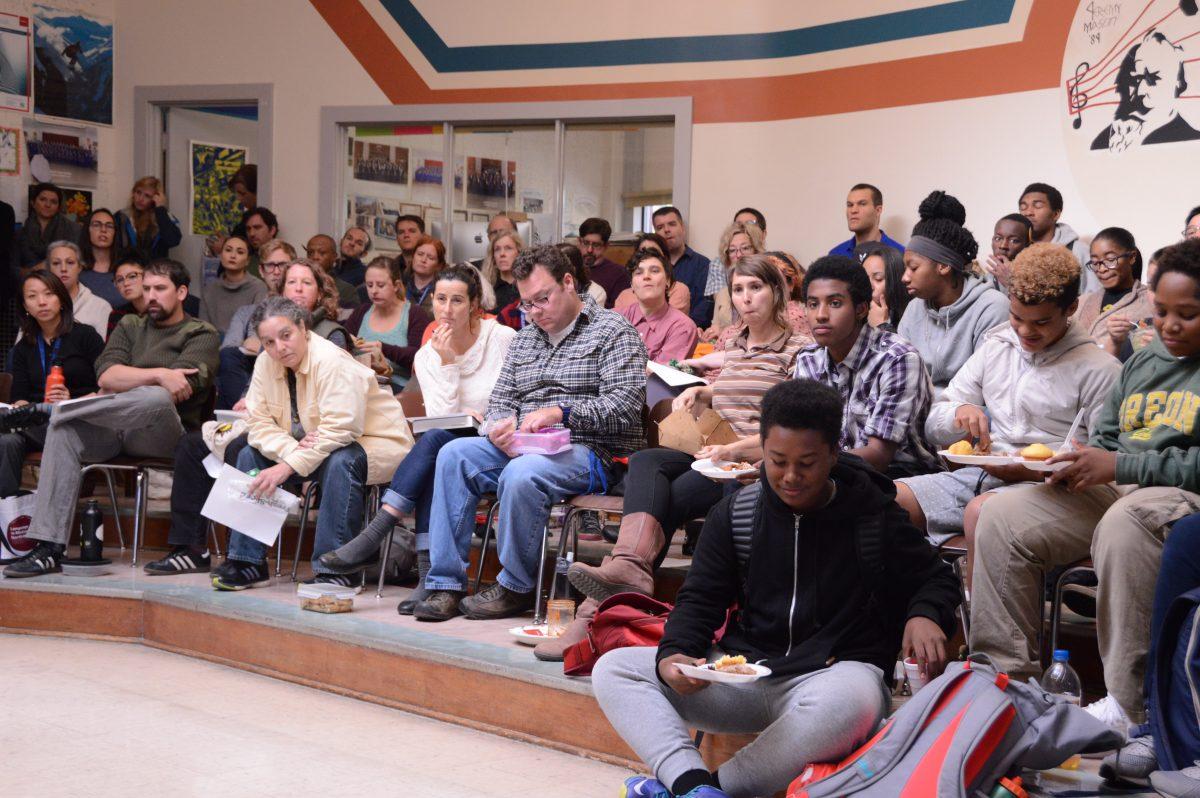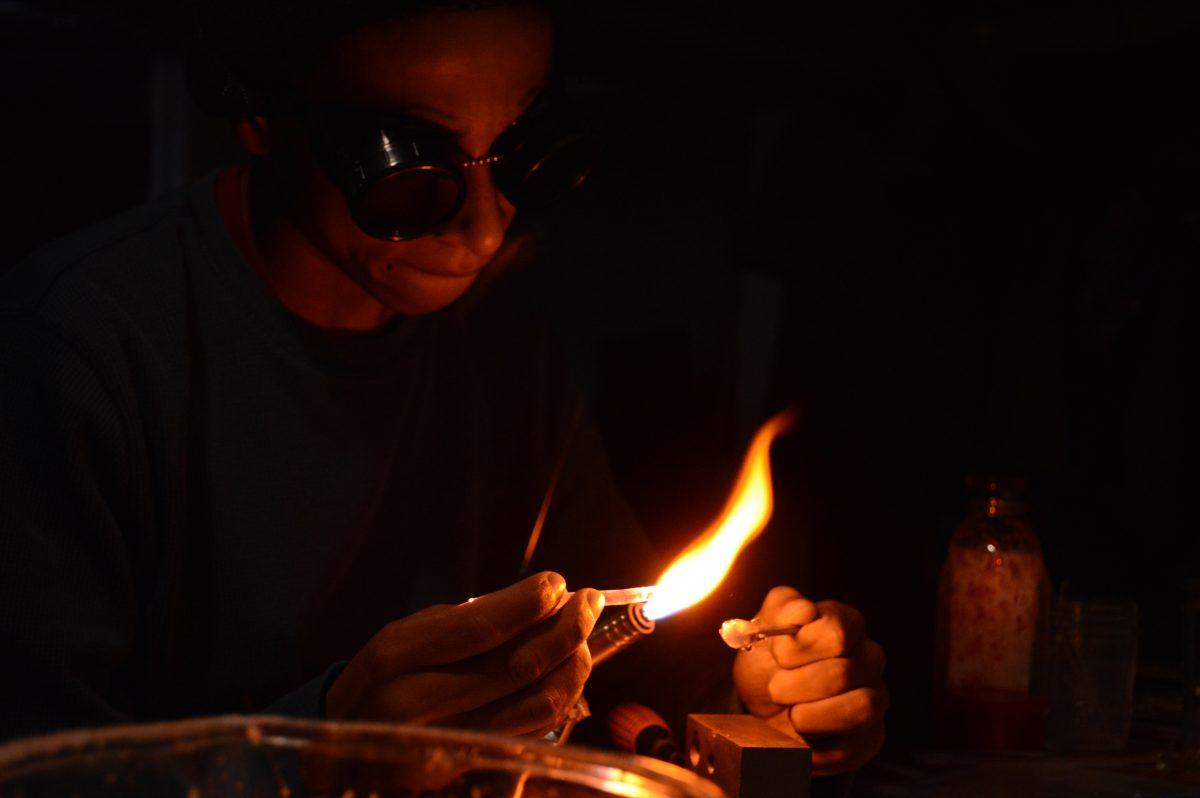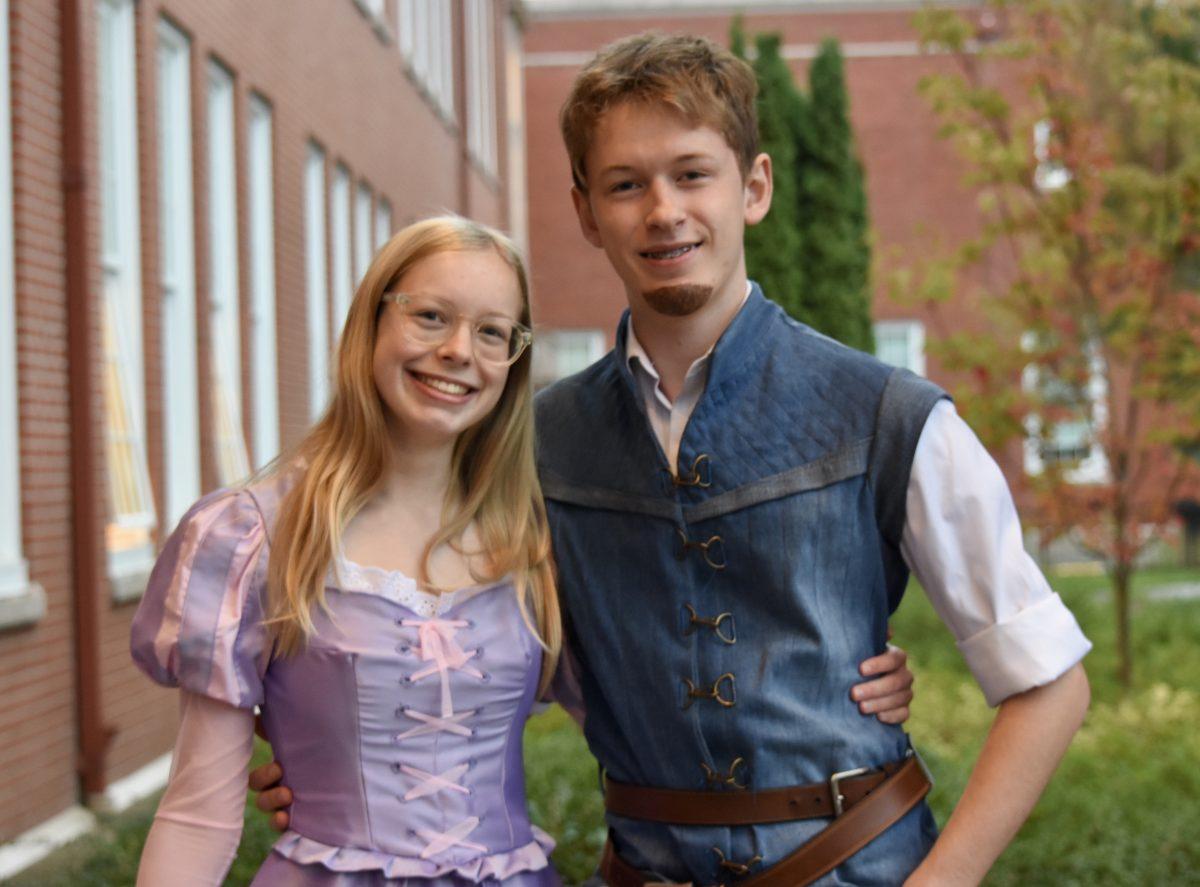
Saadiq DuCloux remembers walking through the streets of New Orleans after Hurricane Katrina hit. At age 8, he looked around in shock. Everything was in ruins. Buildings were ready to collapse. Half the city was drowned out.
It was the first time DuCloux had been home since the disaster; the same year he had moved to Portland with his father. It was also the first time he had seen his mother in two years. He remembers feeling pure delight when he saw her.
Today, his divorced parents live nearly half a continent away from each other. They separated before the hurricane and now he sees his mom two months out of the year.
A junior at Grant High School, DuCloux lives in two worlds: in Portland with his dad and in New Orleans with his mom. And though his story may seem unique, many children across the country experience hardships when parents split up.
Divorce in the United States has become increasingly common. Half of children in the U.S. have divorced parents, which studies show can be particularly hard for young teens.
Yshai Boussi, a licensed professional counselor in Portland, says divorce is “confusing and complicated” for many kids experiencing it. “At this age, you’re dealing with so many things,” says Boussi, “like trying to find yourself and having space and autonomy and friends and more academic pressure. This is one more thing that you have to add onto your plate.”
Kids often feel caught in the middle of the conflict, and the line between child and mediator, Boussi says, becomes blurred. “Their role can feel confusing, like, ‘Am I supposed to be a support person for my parents? Am I supposed to be there for them? How much should I know?’”
Many Grant students are affected by this internal conflict. Some have dealt with it by distancing themselves from a parent. Others have worked hard to maintain both relationships.
Gianna Russo-Mitma, a licensed marriage and family therapist intern, says some couples with kids jump to divorce without fully considering the impact on the family. “When something’s hard, a lot of people just give up,” she says. “When you have kids, you can’t just give up.”
While statistics show divorce no longer comes as a surprise, it doesn’t mean the impact is felt any less. Grant senior Haven Williams puts it bluntly: “It sucks,” she says. “But I think once you get older, you realize what’s going on and you realize you have to accept it because that’s the only thing you can do.” ◊
Eliza Kamerling-Brown contributed to this report.
Saadiq DuCloux, 16, junior
[aesop_image imgwidth=”800px” img=”https://grantmagazine.com/wp-content/uploads/2015/11/IMG_4419-copy-1.jpg” align=”center” lightbox=”on” caption=”Ducloux holding a Christmas present from his mother, who lives in New Orleans.” captionposition=”left”]
“My parents split up when I was 3. With my dad, it’s not really like the normal parent-child relationship. I feel like it is more like a work and play relationship. And my mom…she’s really caring. I think growing up with just a father has really had an impact. Dads will teach you one thing, moms will teach you different. So it’s like growing up with your dad, I guess…you’re hardened more. When I’m with my mom, I act a different way. I’m definitely closer with my mom. The year after Katrina, my mom had a really low budget, so she took us to a flea market, I think we had a $5 budget each to buy ourselves a Christmas present and this is what I could find for $5. So even though I’m thousands of miles away…I’m still with her in a way.”
Yaw Agyemang, 16, junior
[aesop_image imgwidth=”800px” img=”https://grantmagazine.com/wp-content/uploads/2015/11/IMG_4938-copy-copy.jpg” align=”center” lightbox=”on” caption=”Yaw Agyemang with mom, Ama Boatemah, and sister, Afua Pinamang.” captionposition=”left”]
“I was, I think, six or seven when my parents got divorced. I live with my mom and I don’t see my dad. I guess I’m kind of missing a father figure, so I look up to older males a lot more than other kids do. I always think about how my life would be with a dad. I enjoy my life a lot now. My mom always talks about how like, if we tried to stick with it without the divorce, our life would have been a lot different and we probably wouldn’t be enjoying it as much. I definitely think that she made the right decision. I know there’s women out there who are afraid to get divorced from their husbands because they are afraid of them, and so I’m glad my mom was actually able to do that. My mom is probably the happiest person on the planet, and as long as she’s happy, I’m happy.”
Lily Secter, 15, sophomore
[aesop_image imgwidth=”800px” img=”https://grantmagazine.com/wp-content/uploads/2015/11/IMG_5009-copy.jpg” align=”center” lightbox=”on” caption=”Secter looking at a family photo from before her parents were divorced.” captionposition=”left”]
“So spring break of seventh grade, we were supposed to go on a vacation, and it just like didn’t happen. I don’t really know when they got divorced. I kinda blocked out that whole time. I think about it and I can’t put things in order. My parents don’t get along. They just don’t talk to each other. It’s not the greatest relationship. It definitely can be a struggle. ‘Should I be involved in this? Should I not? Should my parents be talking to me about this? Should I have my own opinion? Should I be talking to them?’ They’re your parents; it’s hard to not agree. I think they have gotten better about not talking to me about how they are feeling about each other. I think it will settle down.”
Anna Shaff, 17, senior
[aesop_image imgwidth=”800px” img=”https://grantmagazine.com/wp-content/uploads/2015/11/IMG_3747.jpg” align=”right” lightbox=”on” caption=”Anna Shaff packing her bags before switching between her parents’ houses.” captionposition=”left”]
“My parents – since they have been divorced – have been very good friends. They did a really good job of keeping us out of it. It’s not worth it to have a family that is clearly in turmoil or under pressure because I think that creates a lot more tension in the family. I think that one of the biggest negatives for me is just not having one place to call home. The biggest thing that it has changed is my independence, which I am thankful for. I also think that my parents helped me define what a family is. A family is not like ‘you live in the same house,’ but family is someone that you care about. Now that I see that marriage isn’t the thing that defines a family, I could see myself not needing to get married to prove my strength in a relationship with someone.”
Haven Williams, 17, senior
[aesop_image imgwidth=”800px” img=”https://grantmagazine.com/wp-content/uploads/2015/11/IMG_4599-copy.jpg” align=”center” lightbox=”on” caption=”Haven Williams with mom, Nichole Colombo.” captionposition=”left”]
“It’s sad but I don’t know the next time I’ll see him. I mean it’s different… I used to be one of those kids where like every other weekend I’d go to my dad’s and I’d go to my mom’s. I just feel like now I’m not really his number one priority. I think what really hurt me is that of my four years at Grant, he’s not come to one game of mine; volleyball, softball, basketball. I feel like it’s kind of too late for him to come into my life and try to fix things. Every game, like Senior Night, especially…I knew deep down, ‘OK, my dad’s not coming. Haven, you’re fine. Don’t worry about it.’ I would…look at the doors like, ‘Maybe he’ll surprise me. Maybe he’ll change.’ I have to adapt to it and I have to accept it. And that’s what my mom always taught me; I shouldn’t depend on someone who’s not going to be there. She’s played both roles. It’s always been me and her. I love her so much.”
































